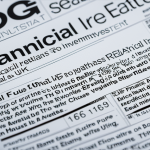AI Applications Revolutionising UK Automotive Manufacturing
In the UK automotive industry, artificial intelligence in UK car production is transforming traditional manufacturing methods. Many British plants have integrated automation in UK automotive industry with AI-driven robotics to enhance speed and precision. For example, robots now perform intricate tasks like assembly, welding, and painting, consistently outperforming manual labor in accuracy and efficiency.
One standout AI application is the use of computer vision systems for real-time quality control. These systems scan components on production lines, detecting defects or inconsistencies instantly, thus minimising waste and improving final product quality. This technology represents a pivotal advancement as early defect detection reduces costly recall risks.
Also read : How Might Electric Vehicles Revolutionize the UK’s Automotive Sector?
Moreover, the integration of AI-powered sensors allows for adaptive adjustments during production, helping factories respond dynamically to operational conditions. By embedding these AI systems, manufacturers not only streamline workflow but also boost reliability and throughput. This showcases how AI manufacturing examples set new productivity standards, marking a clear departure from conventional processes in UK automotive plants.
AI Applications Revolutionising UK Automotive Manufacturing
Artificial intelligence in UK car production is profoundly changing traditional manufacturing methods. British automotive plants increasingly implement AI-powered automation to enhance efficiency and precision. For example, robots now perform complex tasks such as assembly, welding, and painting, which were once entirely manual processes. This integration of robotics not only accelerates production but also reduces human error.
Also read : What is the impact of digital transformation on UK automotive production?
Computer vision is another key AI manufacturing example transforming UK car production. It enables real-time quality control by scanning each vehicle component during assembly, quickly detecting defects that could compromise safety or performance. This immediate feedback loop significantly improves overall product quality.
The use of AI also streamlines repetitive processes and lowers operational costs. Automation in UK automotive industry plants minimizes downtime due to malfunctions by incorporating predictive maintenance systems. These systems analyze vast data sets to predict when equipment requires servicing, preventing unexpected breakdowns. Consequently, AI applications in UK car production deliver a blend of improved quality, increased productivity, and operational cost savings vital for maintaining global competitiveness.
AI Applications Revolutionising UK Automotive Manufacturing
Artificial intelligence in UK car production is no longer just theoretical; it’s actively reshaping the manufacturing floor. One striking AI manufacturing example is the integration of robotics that tackle complex tasks such as assembly, welding, and painting. These robots perform with unmatched precision and speed, significantly boosting efficiency in UK automotive plants.
Automation in UK automotive industry facilities extends beyond physical tasks. Advanced computer vision systems power real-time quality control on production lines, instantly identifying defects that human inspectors might miss. This capability ensures early intervention, reducing scrap rates and enhancing overall product reliability.
Moreover, AI’s role in data-driven decision-making allows factories to streamline operations. By constantly analyzing production data, AI systems can adapt workflows dynamically, maintaining optimal output without sacrificing quality. This amalgamation of robotics, automation, and smart analytics serves as a compelling demonstration of artificial intelligence in UK car production, setting a new benchmark for the industry’s future.
Improving Efficiency and Cost Savings through AI
Artificial intelligence in UK car production significantly enhances efficiency in UK automotive factories by minimising machine downtime. One key AI manufacturing example is predictive maintenance, where sensors collect real-time equipment data to forecast failures before they occur. This proactive approach avoids costly breakdowns and production halts, directly translating into substantial cost savings with AI.
Furthermore, automation in the UK automotive industry utilises data analytics to optimise resource usage and reduce waste. By analysing production data, AI algorithms identify inefficiencies in materials and energy consumption, enabling plants to adapt processes and cut unnecessary expenditures.
Dynamic scheduling powered by AI improves fleet logistics and workforce allocation, thereby shortening production cycles. This means automotive manufacturers can respond swiftly to market demands without sacrificing quality or throughput. The digital transformation UK auto industry is experiencing, driven by integrating AI into core operations, is setting new benchmarks for operational excellence and financial performance. These AI-driven gains underline the strategic importance of adopting advanced technology to maintain competitiveness within the evolving automotive sector.
AI Applications Revolutionising UK Automotive Manufacturing
Artificial intelligence in UK car production is redefining tasks once reliant on human labor through advanced automation in UK automotive industry facilities. Leading AI manufacturing examples include the deployment of robotics for intricate operations such as assembly, welding, and painting. These robots perform consistently with superior precision, reducing errors and accelerating production cycles significantly.
A pivotal AI application involves computer vision systems embedded in production lines. These systems perform real-time quality control by scanning components at every stage, instantly identifying defects or anomalies that traditional inspection methods might overlook. This early detection not only ensures higher product quality but also prevents costly recalls.
Additionally, AI-powered automation supports adaptive manufacturing processes. By integrating continuous feedback from sensors and vision systems, AI dynamically adjusts workflows to maintain optimal efficiency. This synergy of robotics, computer vision, and automation illustrates how artificial intelligence in UK car production drives substantial improvements in manufacturing speed, accuracy, and overall product reliability. The consistent incorporation of these AI manufacturing examples reflects a shift toward smarter, more resilient automotive production across the UK.
AI Applications Revolutionising UK Automotive Manufacturing
Artificial intelligence in UK car production has become a cornerstone for modernising manufacturing floors. British plants increasingly implement automation in UK automotive industry alongside robotics, taking over complex tasks like assembly, welding, and painting with remarkable precision and speed. These AI manufacturing examples demonstrate how automation not only accelerates workflows but also elevates consistency beyond human capability.
A particularly impactful application is the deployment of computer vision systems that deliver real-time quality control during production. By continuously scanning components on fast-moving assembly lines, these systems instantly detect defects, preventing flawed parts from advancing. This early detection reduces costly reworks and guarantees higher end-product reliability.
Integration of these AI technologies creates a powerful synergy within UK automotive plants. Robotics handle intricate physical processes, while computer vision ensures every component meets strict standards. Together, these innovations exemplify the transformative potential of artificial intelligence in UK car production—enabling manufacturers to meet rising market demands with superior quality and efficiency. This evolution marks a decisive shift toward smarter, more resilient automotive manufacturing.
AI Applications Revolutionising UK Automotive Manufacturing
Artificial intelligence in UK car production is actively enhancing manufacturing capabilities through sophisticated automation in UK automotive industry settings. One prominent AI manufacturing example is the integration of advanced robotics for tasks like assembly, welding, and painting, where precision and repeatability are critical. These robots decrease production errors and accelerate workflows, enabling manufacturers to meet demanding output schedules without sacrificing quality.
Another transformative AI application is the deployment of computer vision systems on production lines. These systems facilitate real-time quality control by scanning each part during assembly to detect defects or anomalies immediately. This instant feedback enables swift corrective actions, preventing faulty components from progressing further, which significantly reduces waste and enhances overall workmanship.
The synergy between robotics and computer vision exemplifies how artificial intelligence in UK car production creates a responsive, intelligent manufacturing environment. With AI-driven automation, plants adjust dynamically to variances in production requirements, improving both speed and accuracy in car manufacturing processes. These innovations solidify AI’s essential role in modernising British automotive production, elevating standards across the industry.
AI Applications Revolutionising UK Automotive Manufacturing
Artificial intelligence in UK car production showcases clear, impactful examples of automation in UK automotive industry settings. British factories actively employ AI-powered robotics to manage precise tasks such as assembly, welding, and painting. These AI manufacturing examples demonstrate remarkable improvements in speed and accuracy, surpassing manual labor limitations.
Additionally, computer vision systems integrated into production lines perform real-time quality control by scanning and analysing components continuously. This advanced visual inspection detects defects or anomalies instantly, allowing manufacturers to intervene early and maintain consistent standards. The adoption of these AI capabilities not only enhances product quality but also streamlines operations by reducing delays from manual inspection.
Moreover, the combination of robotics and computer vision enables dynamic adaptation of workflows, where AI adjusts robotic operations based on real-time feedback. This synergy illustrates how artificial intelligence in UK car production doesn’t merely automate but optimises processes, paving the way for smarter manufacturing.
These pragmatic AI implementations reaffirm the UK automotive industry’s commitment to precision, efficiency, and scalability through cutting-edge automation and AI manufacturing examples tailored to evolving production demands.







